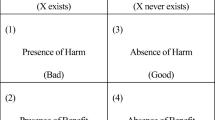Abstract
The late 16th century Indian philosopher Vijñānabhikṣu is most well known today for his commentaries on Sāṃkhya and Yoga texts. However, the majority of his extant corpus belongs to the tradition of Bhedābheda (Difference and Non-Difference) Vedānta. This article elucidates three Vedāntic arguments from Vijñānabhikṣu’s voluminous commentary on the Brahma Sūtra, entitled Vijñānāmṛtabhāṣya (Commentary on the Nectar of Knowledge). The first section of the article explores the meaning of bhedābheda, showing that in Vijñānabhikṣu’s understanding, “difference and non-difference” does not entail a denial of the principle of contradiction. The second shows how the relation between the individual soul (jīva) and Brahman can be understood as a relation of part and whole. The third section discusses Brahman as cause of the world, and Vijñānabhikṣu’s particular formulation of Brahman as “locus cause” (adhiṣṭhānakāraṇa). Understanding these arguments enables us to appreciate how Vijñānabhikṣu’s Difference and Non-Difference Vedānta is a credible alternative to the Advaita Vedānta schools prevalent in northern India in the late medieval period, and how in his later works Vijñānabhikṣu built upon this Difference and Non-Difference metaphysical framework to argue for the unity of Vedānta, Yoga, and Sāṃ-khya philosophies.
Similar content being viewed by others
Abbreviations
- Bṛh. Up.:
-
—Bṛhadāranyaka Upaniṣad
- BS :
-
—Brahma Sūtra
- Chānd. Up.:
-
—Chāndogya Upaniṣad
- SPB :
-
—Sāṃkhyapravacanabhāṣya of Vijñānabhikṣu
- Śvet. Up.:
-
—Śvetāśvatara Upaniṣad
- VAB :
-
—Vijñānāmṛtabhāṣya of Vijñānabhikṣu
- Viṣ. Pu.:
-
—Viṣṇu Purāṇa
References
Appaya Dīkṣita (1989). In B. Shastry (Ed.), Siddhāntaleśasaṃgraha. Varanasi: Chaukhambha Sanskrit Sansthan.
Bhāskara (1903). In Pandit Vindhyeshvari Prasada Dvivedin. (Ed.), Brahmasūtrabhāṣyam. Benareṣ Chowkhamba Sanskrit Book Depot.
Bhāvāgaṇeśa (1969). Sāṃkhyatattvayāthārthyadīpana. In V. P. Dvivedi (Ed.), Sāṃkhyasaṃgraha (pp. 33–58). Varanasi: Chowkhamba Sanskrit Series Office.
Dasgupta, S. (1922). A history of Indian philosophy, Vol. I-V. Delhi: Motilal Banarsidass.
Hacker, P. (Ed. and trans.) (1949). Upadeshasāhasrī: Unterweisung in der All-Einheits-Lehre der Inder von Meister Shankara. Bonn: Ludwig Röhrscheid Verlag.
Hiriyanna M. (1957) Indian philosophical studies, Vol I–II. Kavyalaya Publishers, Mysore
Ingalls D.H.H. (1953) Śaṃkara on the Question: Whose is avidyā?. Philosophy East and West 3: 69–72
Matilal B.K. (1968) The Navya-Nyāya doctrine of negation. Harvard University Press, Cambridge
Matilal B.K. (1986) Perception: An essay on classical Indian theories of knowledge. Clarendon Press, Oxford
Nakamura H. (1989) A history of early vedānta philosophy, Part 1. Motilal Banarsidass, Delhi
Nicholson, A. J. (2005a). Doctrine and boundary-formatioṇ The philosophy of Vijñānabhikṣu in Indian intellectual history. Ph.D. Diss., University of Chicago.
Nicholson A.J. (2005b) Vijñānabhikṣu’s yoga: A note on doctrinal identity in late-medieval India. Journal of Vaishnava Studies 14: 43–63
Nicholson, A. J. (2006). Bhedabheda Vedanta. Internet Encyclopedia of Philosophy, http://www.iep.utm.edu/
Oberhammer, G. (1997). Materialien zur Geschichte der Rāmānuja-Schule III: Yādavaprakāśa, der vergessene Lehrer Rāmānujas. Wieṇ Verlag der Österreichischen Akademie der Wissenschaften.
Olivelle P. (1996) The early upaniṣads: Annotated text and translation. Oxford University Press, New York
Potter K.H. (1963) Presuppositions of India’s philosophies. Prentice-Hall, Englewood Cliffs
Potter K.H. (1977) Encyclopedia of Indian philosophies, Vol. II: The tradition of Nyāya-Vaiśeṣika up to Gaṅgeśa. Motilal Banarsidass, Delhi
Potter K., Bhattacharyya S. (1993) Encyclopedia of Indian philosophies, Vol VI: Indian philosophical analysis Nyāya-Vaiśeṣika from Gaṅgeśa to Raghunatha Śiromaṇi. Motilal Banarsidass, Delhi
Prakāśānanda (1975). In Arthur Venis. (Ed. And trans.), Vedāntasiddhāntamuktāvalī. Varanasi: Chaukhamba Orientalia.
Ram K. (1995) Integral non-dualisṃ A critical exposition of Vijñānabhikṣu’s system of philosophy. Motilal Banarsidass, Delhi
Rao S. (1996) Two ‘Myths’ in Advaita. Journal of Indian Philosophy 24: 265–279
Śaṅkara (1996). Brahmasūtrabhāṣyam, with Bhāmatī and Bhāmatīvyākhyā. Varanasi: Chaukhamba Vidyā Bhavan.
Smith F.M. (1998) Nirodha and the Nirodhalakṣaṇa of Vallabhācārya. Journal of Indian Philosophy 26: 489–551
Smith F.M. (2005) The hierarchy of philosophical systems according to Vallabhācārya. Journal of Indian Philosophy 33: 421–453
Vedānta Deśika (1974) Śatadūṣaṇī. Madras: V.D. Ramaswami
Vijñānabhikṣu (1895). In R. Garbe, (Ed.), Sāṃkhya-pravacana-bhāṣya (Harvard Oriental Series, Vol. II). Cambridge: Harvard University Press.
Vijñānabhikṣu (1979). In Pandit Kedāranātha Tripāṭhī (Ed.), Brahmasūtra – Vijñānāmṛtabhāṣyam. Varanasi: Banaras Hindu University Press.
Vijñānabhikṣu (1981). In T.S. Rukmani (Ed. and trans.), Yogavārttika of Vijñānabhikṣu, Vol. I. New Delhi: Munshiram Manoharlal Publishers Pvt. Ltd.
Author information
Authors and Affiliations
Corresponding author
Rights and permissions
About this article
Cite this article
Nicholson, A.J. Reconciling dualism and non-dualism: three arguments in Vijñānabhikṣu’s Bhedābheda Vedānta. J Indian Philos 35, 371–403 (2007). https://doi.org/10.1007/s10781-007-9016-6
Published:
Issue Date:
DOI: https://doi.org/10.1007/s10781-007-9016-6



